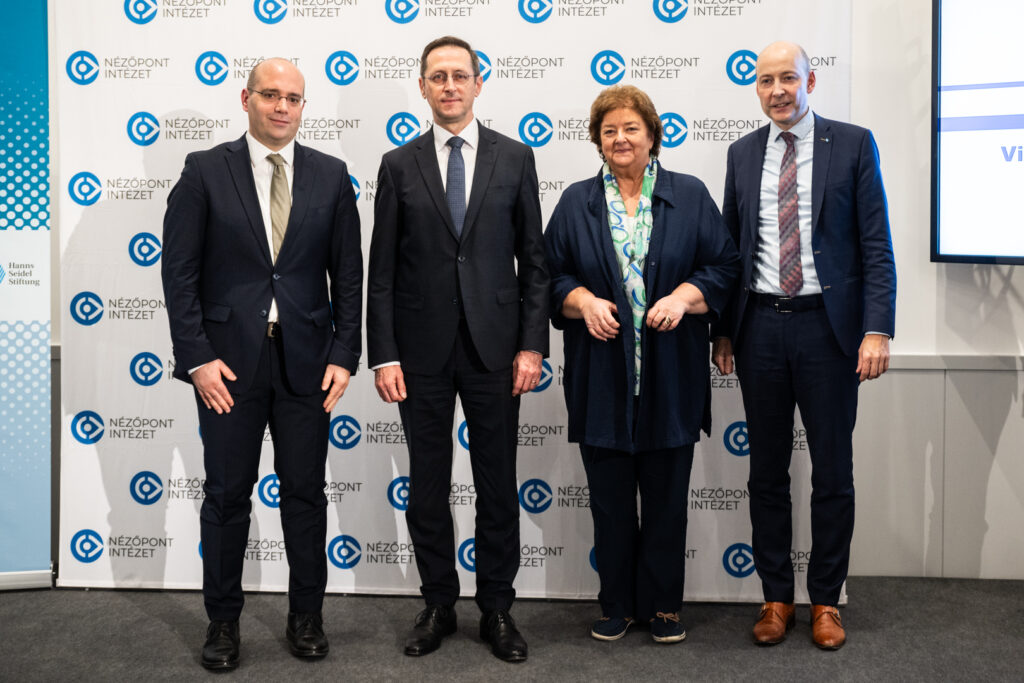In its recent study “Towards a Snow White Economy“, the Nézőpont Institute has aimed to examine the economic whitening performance of the Central European region, taking into account the regional differences and changes over time. The study conducts a second analysis of Eurobarometer’s and its own opinion polls, as well as the economic estimates of the European Commission.
The event, organised in cooperation between the Hanns-Seidel Foundation and the Nézőpont Institute, was opened by Dr. Markus Ehm, Head of the Hanns Seidel Foundation’s ‘Central Europe’ regional project. Sámuel Ágoston Mráz, CEO of Nézőpont Institute, used the results of the Eurobarometer survey on corruption to show that the last decade has been an outstanding period of economic whitening. This is clearly demonstrated, among other things, by the fact the number of people satisfied with the government’s anti-corruption efforts has tripled since 2010 and the number of people in Hungary who experience corruption has more than halved.
Gabriella Vukovich, Director of Economic Research at the Nézőpont Institute, presenting the results of the public opinion poll and the European Commission’s economic estimates, highlighted that the reduction of the VAT rate was a real success story, which enabled the government to achieve a significant increase in VAT revenues.
Following the presentation of the survey, in his speech, Finance Minister Mihály Varga stressed that the key to whitening the economy is to collect taxes effectively and not to increase them. If everyone pays their taxes honestly, the higher revenue indicates that the tax burden can even be reduced rather than increased. Shifting the focus of the tax system from labour taxes to consumption taxes was an important element of the last decade’s economic policy. In addition to the introduction of new digital tools such as the EKÁER, online cash registers, invoicing and POS terminals, the automation of tax declarations has been not only an effective but also a popular measure. The economic policy measures listed by the Minister have all contributed to the fact that Hungary has implemented one of the largest economic whitening programmes in Europe.
The entire study is available at the link below.

